THIS IS SPINAL TAP (1984)
Spinal Tap, one of England's loudest bands, is chronicled by film director Marty DiBergi on what proves to be a fateful tour.
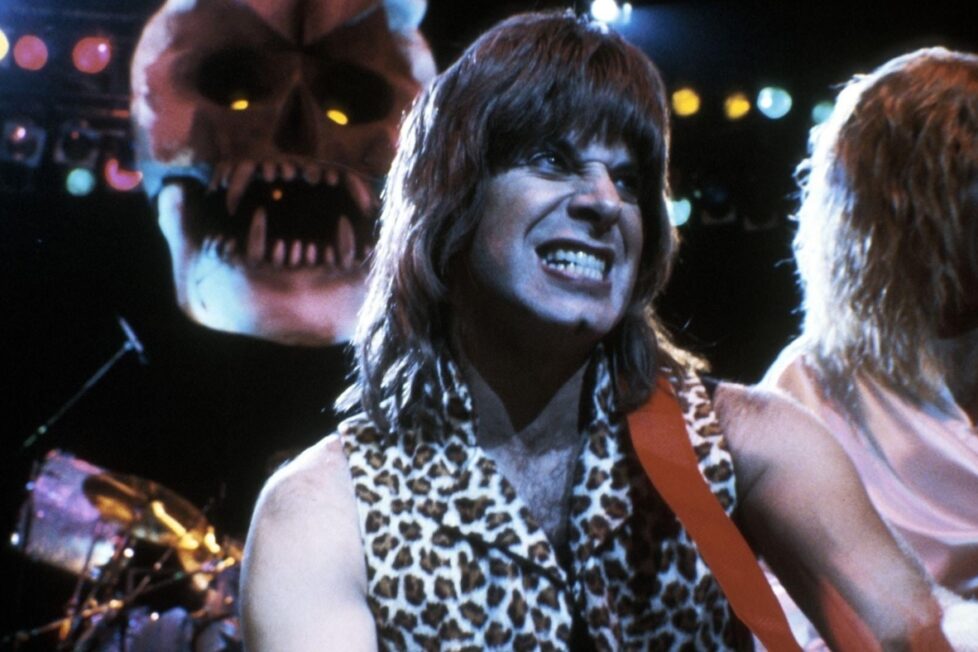
Spinal Tap, one of England's loudest bands, is chronicled by film director Marty DiBergi on what proves to be a fateful tour.


In 1984, Rob Reiner did something no film director had done before: make a mockumentary about a fictional rock n’ roll band. Inspired by behind-the-scene footage from the newly launched MTV, anecdotes from real-life musicians, and characters from a short-lived television sketch show, Reiner and his co-writers and stars (Christopher Guest, Michael McKean, and Harry Shearer) created This is Spinal Tap.
This is Spinal Tap has since entered the culture lexicon and spawned an entire genre of filmmaking that was largely confined to TV. The film’s become such a staple that excitement for its belated and upcoming sequel, Spinal Tap II, is high among film buffs and comedy fans. Admittedly, getting the original made at all in the 1980s was a feat in and of itself…
Recognising that a written screenplay would never do justice to their vision for this entirely improvised film, Reiner, Guest, McKean and Shearer created a demo tape instead and shopped it around to every major studio in Los Angeles. For nearly two years, all they heard was “no”. Finally, film and TV producer Norman Lear decided to take a chance on the odd little film, giving it a budget of $2M. Like many cult classics, the world’s first wide-release mockumentary was filmed entirely in and around L.A. over just five weeks. That’s all it took to create film history. After all, without This is Spinal Tap, there would be no Drop Dead Gorgeous (1999), Best in Show (2000), or Borat (2006). That’s not to mention the myriad of short films and TV series that have embraced this new mode of comedy.
40 years on, this seminal mockumentary remains not only laugh-out-loud funny but also surprisingly relevant and relatable. Perhaps because it’s one of the first films to truly ask the entertainment industry to do something it has, particularly recently, been reluctant to do: laugh at itself.
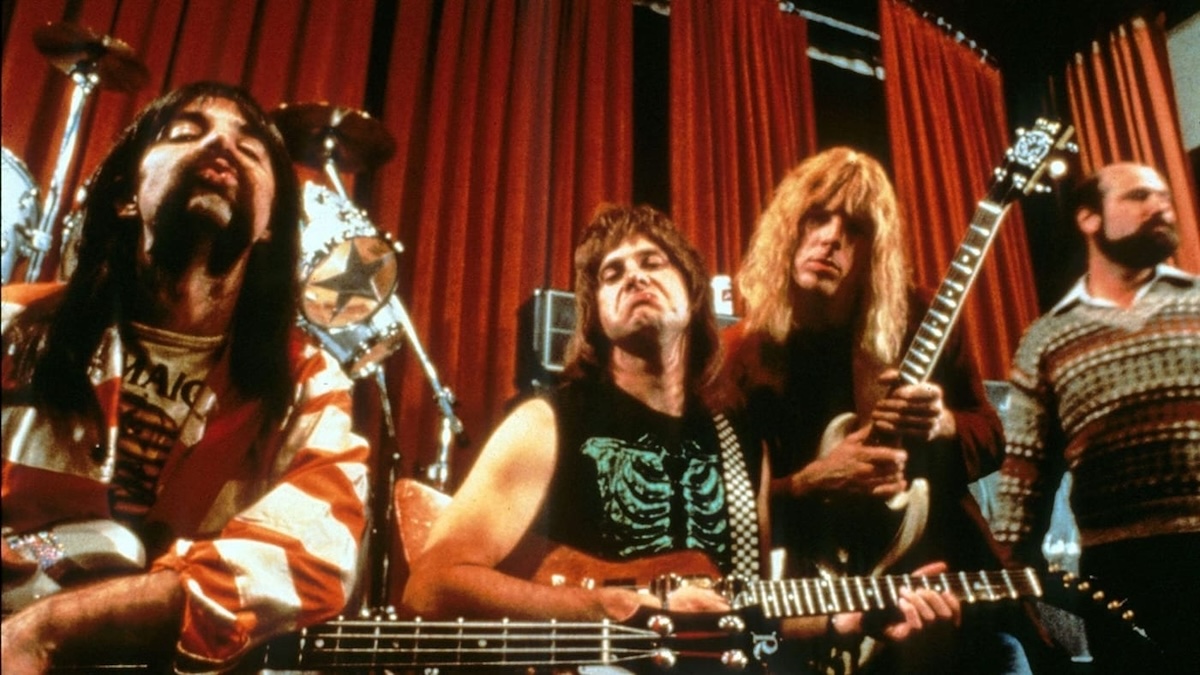
The film opens with Rob Reiner addressing the camera as the fictional director, Martin “Marty” Di Bergi. He claims that he and his team undertook the task of following and filming the band Spinal Tap on their latest US tour to give music lovers a behind-the-scenes look at “the sights, sounds, and smells of a band on tour.” From there, we embark on a journey that sees the once-popular band Spinal Tap struggle to regain their audience with songs from their newest album, Smell the Glove.
Inevitably, misadventures ensue, including an offensive album cover, arguments about the involvement of the lead singer’s girlfriend, Jeanine Pettibone (June Chadwick), and a dwindling number of venues willing to host the band’s concerts. These lead to hot heads and frayed friendships, particularly between the band’s lead singer, David (McKean), and guitarist Nigel (Guest), with simple bassist Derek Smalls (Shearer) caught in the middle.
The story of its lukewarm reception at the box office in 1984 has become legendary amongst film buffs. It wasn’t until after This is Spinal Tap’s release on VHS that it joined the likes of A Christmas Story (1983), The Princess Bride (1987), and The Sandlot (1993), achieving cult status and a place in the cultural lexicon. Even now, four decades later, it’s easy to see why this hilariously absurd mockumentary (which many people in the ’80s didn’t realise was fake) has retained its position as many people’s favourite comedy.
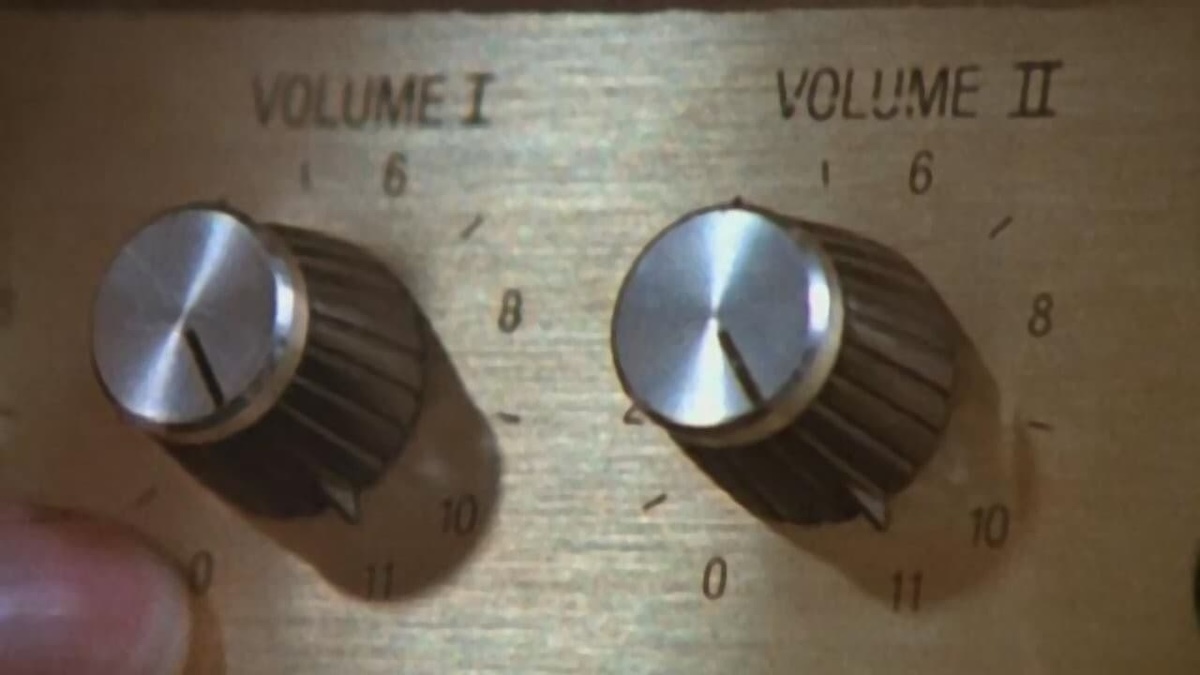
The famous scenes of the band getting so lost backstage that they’re unable to find the stage, descriptions of all the band’s former drummers who passed away under mysterious circumstances (including exploding on stage and choking on someone else’s vomit), and the infamous 18-inch Stonehenge still elicit full-on belly laughs. The laughs come not only from the absurdity of the dialogue but also from the earnest delivery of it from the main players.
The genius of Spinal Tap and the mockumentary genre in general lies in the mixture of brilliant ideas and improvisations with believable performances. The band’s past drummers’ deaths in increasingly fantastical and unbelievable circumstances wouldn’t land at all if the members of the fictional band seemed to be genuinely mourning over their fallen comrades. The titular “This amp goes up to 11” likewise wouldn’t be nearly as funny if Guest Nigel didn’t seem genuinely confused by Marty Di Bergi’s suggestion that they just “make the 10 on the amp louder.”
Admittedly, the cameos featuring Fran Drescher and Dana Carvey may not resonate as strongly with someone born in the 1990s or 2000s as they did with audiences in ’84. However, This is Spinal Tap avoids the pitfall that many comedy films, even great ones like Zoolander (2001), fall victim to: turning celebrity cameos into the crux of jokes. Instead, Reiner gives his celebrities real characters to play. These characters genuinely advance the plot and seem entirely integral. It’s clear they’re not just there as pop culture references; they’re truly part of the world that Spinal Tap inhabits.
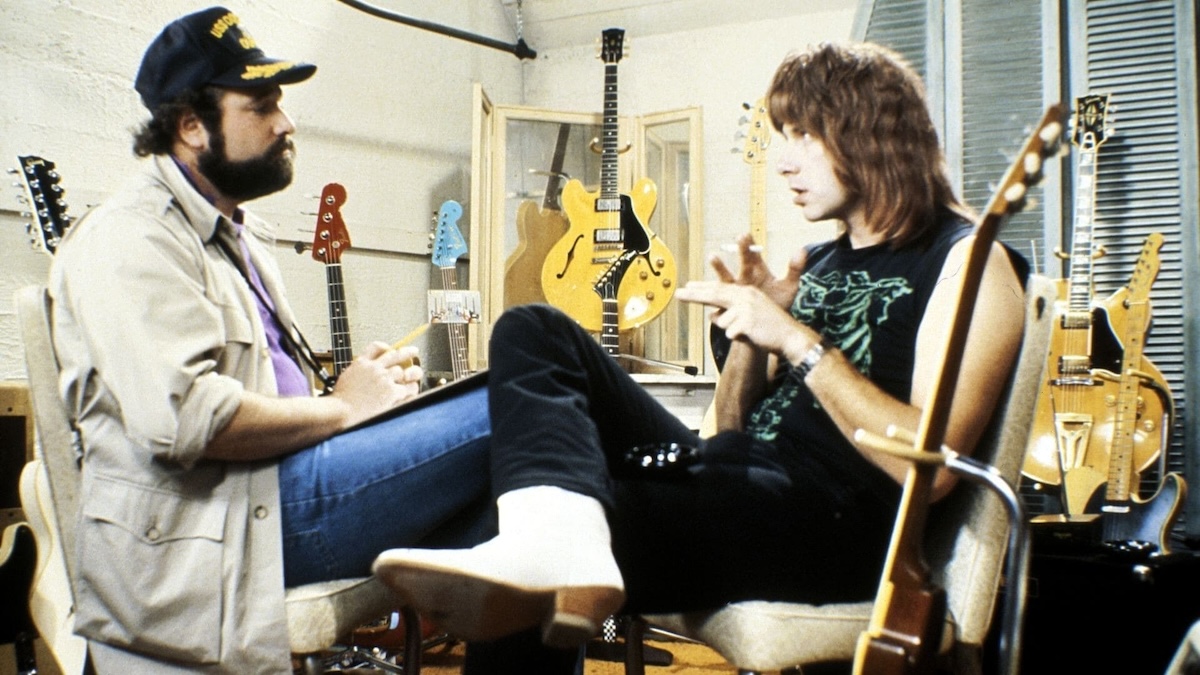
The laughs that still echo through this cultural touchstone of a film, even 40 years later, are still elicited by its satirical portrayal of the realities of fame and music in today’s world. Now, even more so than in the 1980s, musicians and other celebrities are locked in a battle for relevance. Every day, we see musicians resorting to ever more extreme measures to capture the attention of their audiences whose attention spans are dwindling.
This underlying existential crisis of desperation is just as palpable in today’s celebrities as it was in this fictional band. Recent mockumentaries, including Andy Samberg’s Popstar: Never Stop Never Stopping (2016), have also touched on this music industry trend. However, none of them have yet managed to capture the timeless humour or emotional depth of This is Spinal Tap. This is a testament once again to the power of the performances in the film. Guest, Shearer, and McKean could easily have caricatured their characters for comedic effect, but they chose to do the opposite. The sincerity and humanity they imbued these fictional rockers with is what truly elevated this film to iconic status.
Even if you’ve never dreaded selling out a stadium for a concert, you’ve probably felt the sting of rejection at some point. Even if you haven’t been forced to perform alongside a puppet show, many of us have had to take jobs beneath our skill set to make ends meet. That human need for recognition and acceptance is at the heart of this mockumentary. It’s that heart, not the ground-breaking format, the jokes, or even the brilliant acting, that makes this film timeless. Hopefully, people will still be “turning it up to 11” as they laugh at This is Spinal Tap in another 40 years.
USA | 1984 | 82 MINUTES | 1.70:1 | COLOUR | ENGLISH • JAPANESE

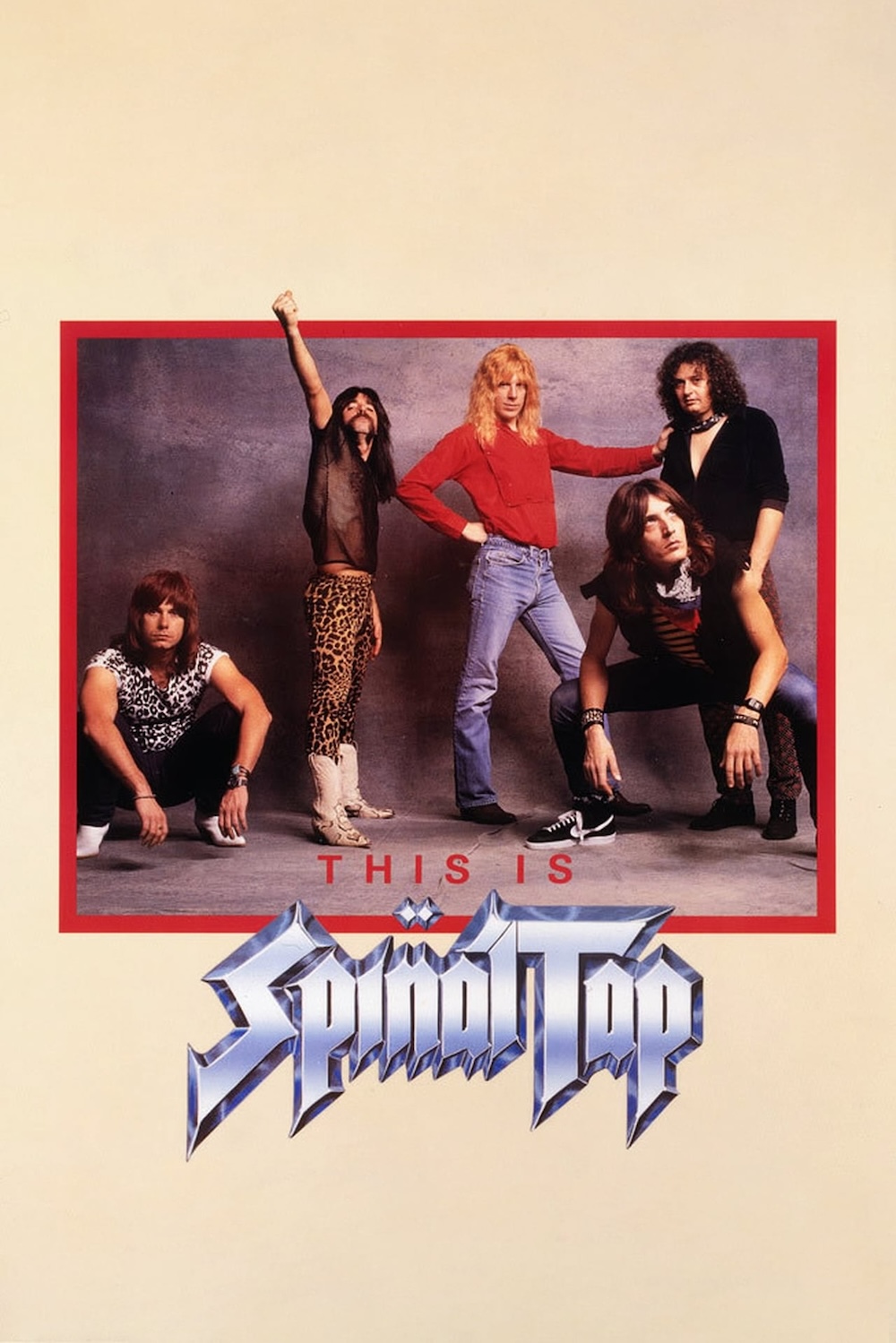
director: Rob Reiner.
writers: Christopher Guest, Michael McKean, Harry Shearer & Rob Reiner.
starring: Christopher Guest, Michael McKean, Harry Shearer, Rob Reiner, June Chadwick, Tony Hendra & Bruno Kirby.
